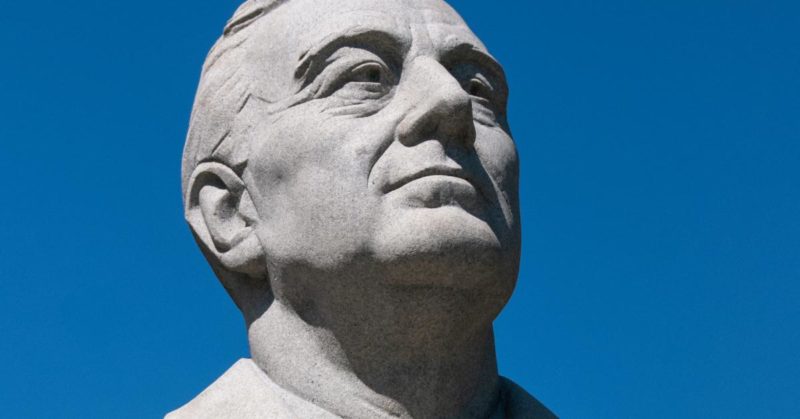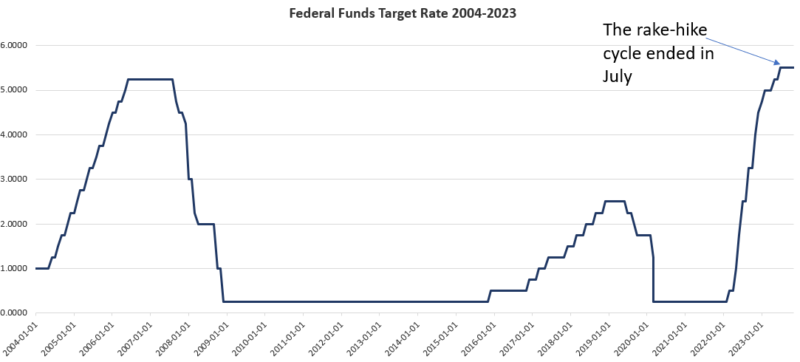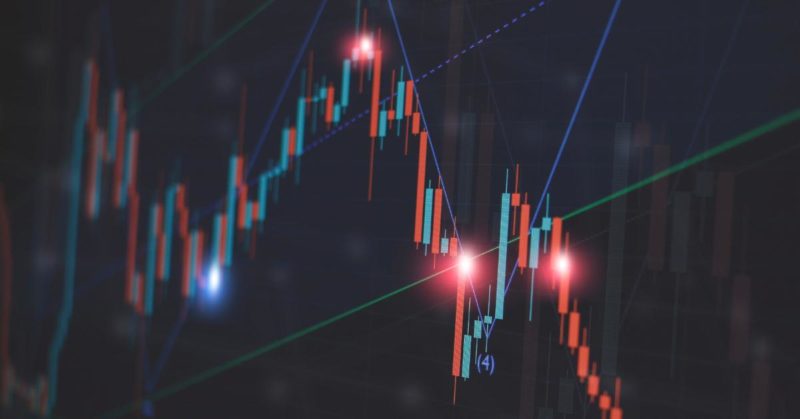Category Archive: 6b.) Mises.org
Headline Math, Women’s Wages, and a Very Bad Deal in Higher Education
Headline math is a simple percentage expressed as a fact without context. Its design is to create an emotional response, support an opinion, or generate a click past the paywall. Once articulated, it exists in speech as a noun. W. Brian Arthur’s paper “Economics in Nouns and Verbs” explains the use of nouns to express a conclusion as fact, excluding further discussion. Student loan statistics for women are presented as facts, needing no further...
Read More »
Read More »
It Began with Carl Menger: The Austrian Intellectual Triumph
Near the end of the nineteenth century, the European intellectual scene witnessed a remarkable theoretical contest known as the “battle of methods,” or in German, Methodenstreit. This intellectual clash stood out due to the confrontation between the precepts of methodological and subjective individualization, equipped with a subjectivist and individualizing worldview of the method. It was represented by figures such as Carl Menger (considered the...
Read More »
Read More »
Do Destroyed Monuments Represent a Past Not Worth Defending?
Many cities and states in this country have been tearing down or destroying monuments because they represent part of a past that progressives and leftists believe should not have existed. Yet each time we tear down something, we potentially lose part of an important heritage.
Original Article: Do Destroyed Monuments Represent a Past Not Worth Defending?
Read More »
Read More »
Biden’s “AI Bill of Rights” May Just Be Another Censorship Plan
President Joe Biden is promoting his “AI Bill of Rights,” which looks to be an attempt to censor political opposition. Naturally, political and media elites are enthusiastically endorsing it.
Original Article: Biden's ""AI Bill of Rights"" May Just Be Another Censorship Plan
Read More »
Read More »
DC’s Debt Trap
Federal debt is soaring out of control, and perhaps it is not surprising that the CBO has not updated its forecasts with this debt uncertainty.
Original Article: DC's Debt Trap
Read More »
Read More »
Markets versus State Healthcare Systems: Some Points of Contention
Progressives claim that state-sponsored healthcare systems are superior to market-based systems. Their arguments don’t add up.
Original Article: Markets versus State Healthcare Systems: Some Points of Contention
Read More »
Read More »
Secession
This week's episode begins 2024 by looking at the growing political divide among the American people—and how to solve it.
Be sure to follow Minor Issues at Mises.org/MinorIssues.
Get your free copy of Murray Rothbard's Anatomy of the State at Mises.org/IssuesFree.
Read More »
Read More »
Claudine Gay, DEI, and the War in the Middle East
A little over six months ago, Claudine Gay was appointed president of Harvard University, the first black president of that now embattled institution. She recently resigned her post, only to retain a $900,000 salary as a professor. No doubt her appointment had more to do with the imperatives of an engulfing diversity, equity, and inclusion (DEI) agenda and less to do with the quality and volume of her scholarship, later found to be riddled with...
Read More »
Read More »
What Is Happening to College Sports?
On Monday night, January 8, the University of Michigan and the University of Washington football teams will vie for the collegiate national championship. While championships always bring excitement to fans and participants alike, this year’s game brings attention to major changes that have occurred in the National Collegiate Athletic Association Division I in the past few years involving both monetary payments and mobility for athletes.
While there...
Read More »
Read More »
The Bad News Hiding Behind the GDP and Jobs Numbers
Economist Daniel Lacalle joins Ryan and Tho to talk about how central banks are engineering more zombie companies, higher inflation, and a "private sector recession," all hiding behind misleading and bullish aggregate data.
Claim your free book: Mises.org/RothPodFree
Be sure to follow Radio Rothbard at Mises.org/RadioRothbard.
Radio Rothbard mugs are now available at the Mises Store. Get yours at Mises.org/RothMug
PROMO CODE:...
Read More »
Read More »
Murray Sabrin on Our Broken Medical System
Murray Sabrin joins Bob to discuss his upcoming online course on the economics of the US healthcare system, including practical solutions. The course begins in mid-January 2024.
Dr. Sabrin's New Online Course: Mises.org/HAP429a
IPAK-EDU.org is offering the following discounts:
50% off until Jan 6th with code: COUNTMEIN
25% off after January 6th with code: JACKSAYS75
Murray Sabrin on Our Broken Medical System...
Read More »
Read More »
Greenwashing: A Bridge between Austrians and Environmentalists?
Greenwashing is a relatively new term to describe false and misleading claims that a product or business practice has environmental benefits. The point is that companies can advertise their efforts as “green” while continuing various profitable activities that environmentalists consider “harmful,” gaming the system and profiting off well-intentioned, sustainably minded consumers.
The term was coined forty years ago by a student in response to a...
Read More »
Read More »
FDR against the Bill of Rights
In this week’s column, I’d like to raise two questions suggested by David Beito’s excellent book The New Deal’s War on the Bill of Rights, which I reviewed last week. First, how can it be that Franklin Roosevelt has acquired a reputation among leftist historians as a champion of liberty, with his internment of Japanese Americans during World War II regarded as an aberration, in the face of the manifold violations of civil liberties that occurred...
Read More »
Read More »
Why Argentina Needs Free Cities
As the libertarian anarchocapitalist Javier Milei ascends to the Argentinian presidency, the parting of the ominous clouds of socialism has brought about the rising sun of libertarianism on the South American continent. The Argentine legislative system, consisting of the Senate and the Chamber of Deputies, is designed to bolster democratic governance and accountability.
However, its inherent structure often leads to impasses, particularly with...
Read More »
Read More »
Why the Fed Sends Mixed Messages on Rate Cuts
The Fed's Federal Open Market Committee released the minutes to its December meeting yesterday, and the minutes further strengthen the view held by many Wall Street investors and observers that the Fed plans to implement rate cuts by the middle of 2024. Specifically, the most recent Fed survey of market participants "suggested that the first reduction in the policy rate would occur in June."
This contrasts only slightly with the FOMC...
Read More »
Read More »
Exposing the Price Level Myth
Price inflation statistics were a hot topic in 2023. Official measures, like the Personal Consumption Expenditures Price Index (PCE) and the Consumer Price Index (CPI), rose to levels not seen in over four decades.
These measures were under commentators’ microscopes as recently as last week. The FRED Blog (run by the St. Louis Fed) briefly discussed how these two measures are constructed and how they differ. Paul Krugman compared the change in the...
Read More »
Read More »
The Bill of Rights: The Only Good Part of the Constitution
The Bill of Rights turns 232 years old today. Adopted in 1791 as a consolation prize for the Anti-Federalists, it has been the most important part of American legal history since the 18th century.
Original Article: The Bill of Rights: The Only Good Part of the Constitution
Read More »
Read More »
Truth Is the Biggest Threat to Democracy in DC
It seems U.S. government officials are entitled to blindfold and deceive the American people to avoid “intruding” on foreign leaders planning a military attack? This theory of democracy gets curiouser and curiouser.
Original Article: Truth Is the Biggest Threat to Democracy in DC
Read More »
Read More »
Zoning Laws: Wolves in Sheep’s Clothing
While zoning laws do not explain all homelessness in this country, they help make housing less affordable, putting more people on the streets who no longer can pay for a place to live.
Original Article: Zoning Laws: Wolves in Sheep's Clothing
Read More »
Read More »
Experiencing the Rothbard Graduate Seminar: Who Should Apply
Why did you want to attend RGS?
I attended the Rothbard Graduate Seminar (RGS) in 2023 for several reasons. For one, it fulfilled a requirement as one of the final classes to complete the Mises graduate program. Additionally, RGS was part of the Mises summer fellowship program, which I was also a part of this year. That said, I wanted to attend RGS because of the unique format it provides for graduate-level reading, lectures, and discussions with...
Read More »
Read More »


























